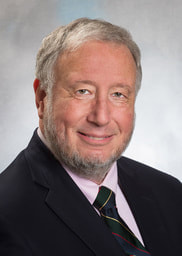 Jerry Avorn, M.D. Professor of Medicine, Harvard Medical School NaRCAD Co-Founder & Special Adviser Tags: Evidence Based Medicine, COVID 19, Jerry Avorn We’ve lived through the vast human tragedy this virus has inflicted, and witnessed the heroic work of our colleagues in the medical and public health sectors. We now see clearly the disproportionate damage it did to the most vulnerable in our country and around the world. And the coronavirus has also had lessons to offer our little academic detailing community. While more modest in scale, they’re worth considering, even as the worst days of the pandemic continue (we hope) to fade.  Lesson One was a re-demonstration of the validity of Avorn’s 6th Law: “Good information doesn’t disseminate itself.” In the most striking possible way, the pandemic rubbed our noses in the fact that just because a medical intervention is very effective and safe, it doesn’t mean that everyone will understand that and use it appropriately – or that a useless and/or dangerous treatment won’t become appallingly popular. The therapeutic misstatements of the former President undermined trust in science badly, and many have become blind to first-rate evidence and disbelieve it. Even today, the flawed communication efforts of the CDC, FDA, and current administration all remind us that even when the scientific Truth Is Out There, it can still be conveyed poorly: more proof that the completion of rigorous, compelling randomized clinical trials is just the beginning, not the end of the journey. Getting the message out, and acted on, is key.  Lesson Two was about the centrality of front-line health care providers, rational health care delivery policies, and our battered but heroic public health infrastructure. Without the effort to get those pieces right, even gallons of messenger RNA would not have been able to turn the tide on the pandemic. And communication of the best science at all of these levels was central to making the system work, even if imperfectly. Two Boston institutions worked together to create COVIDProtocols.org as a real-time way to aggregate the evidence and practical clinical tips as they emerged.  Lesson Three was about communication and empathy. Academic detailers saw how each health care professional they engaged with was giving some of their scarce free time to learn how to care for their patients better – even in the face of overwhelming job demands. While a year and a half of e-Detailing sessions maintained connections and provided a serviceable fallback that was much better than no contact, it also reminded us again of the added value of being there in person: the human contact, the body language, the less stilted give-and-take.  Finally, COVID-19’s Fourth Lesson was about how unevenly we distribute medical resources. We saw more clearly than ever how crucial science-based care is in enabling societies to function – and what happens when those are missing. The U.S. blew past issues of affordability when the federal government wrote a blank check to pay for the vaccine, monoclonal antibody treatment, and (probably) even Merck’s new oral anti-viral pill, making COVID-19 practically the only medical condition for which the nation assures full coverage to all US residents.  But COVID-19 also provided us with yet another opportunity to discover how crucial public – taxpayer – funding is for the development of innovative new medical products, and to ask once again how drugmakers can continue to charge sky-high prices for these products after they’ve patented them. The scientific triumphs of the COVID-19 era have been remarkable. But as we move into what we hope will be the Waning Pandemic Era, it’s a good time to also reflect on the less-heralded but vital role played by evidence-based communication, outreach to health care professionals and their patients, and the importance of fairness in making the victories of medical science available more equitably to all who need them. Have thoughts on our DETAILS Blog posts? You can head on over to our Discussion Forum to continue the conversation! Biography.
Jerry Avorn, MD, Co-Founder & Special Adviser, NaRCAD Dr. Avorn is Professor of Medicine at Harvard Medical School and Chief Emeritus of the Division of Pharmacoepidemiology and Pharmacoeconomics (DoPE) at Brigham & Women's Hospital. A general internist, geriatrician, and drug epidemiologist, he pioneered the concept of academic detailing and is recognized internationally as a leading expert on this topic and on optimal medication use, particularly in the elderly. Read More. Comments are closed.
|
Highlighting Best PracticesWe highlight what's working in clinical education through interviews, features, event recaps, and guest blogs, offering clinical educators the chance to share successes and lessons learned from around the country & beyond. Search Archives
|
